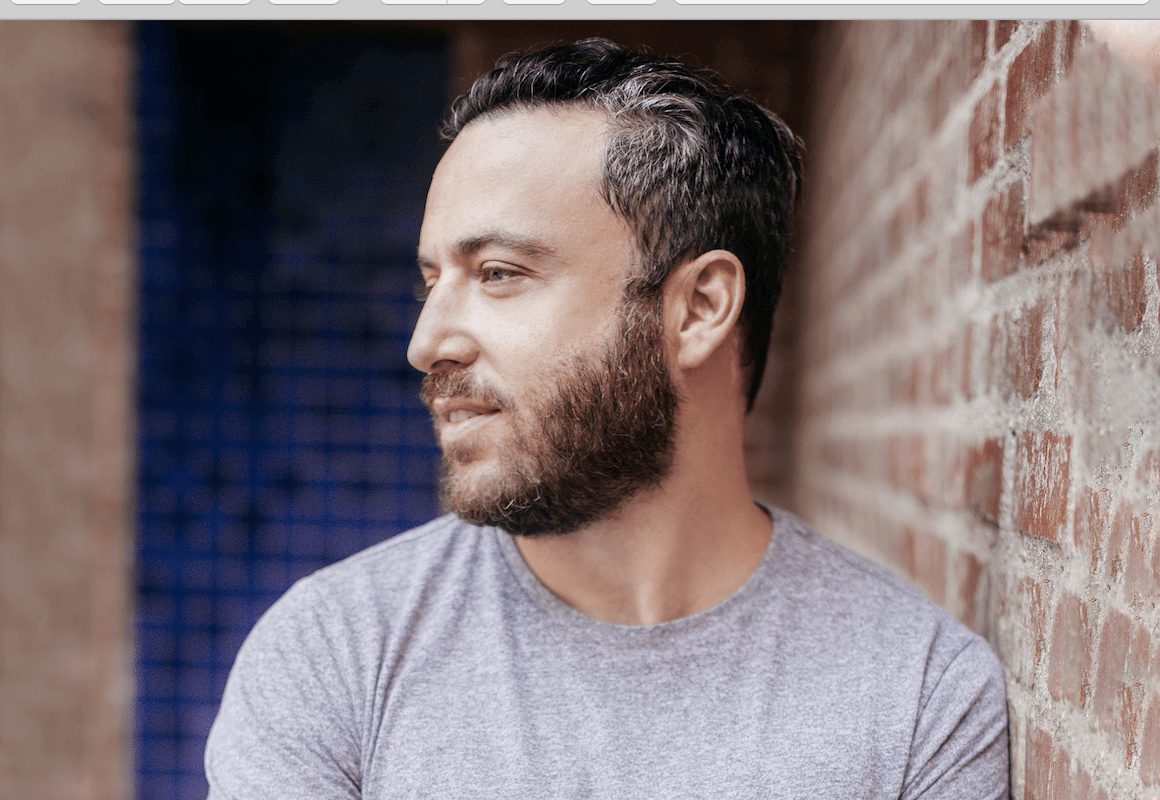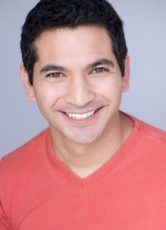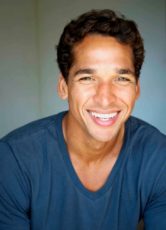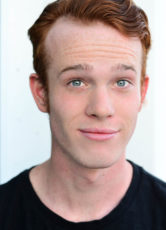
Today we get a sneak peak into the life of casting director David Rapaport and what he looks for during auditions.
You’ll recognize David as one of the most sought out CD’s in the industry, having worked on such major productions as “The Matrix” series, “Riverdale,” and “DC’s Legends of Tomorrow,” among other popular shows.
David Rapaport’s climb to start his own casting company was not all peaches and cream. He shares valuable information with us while discussing how he got his start in the business.
You started out as an intern on big productions such as “The Matrix” and “Titanic.” How did you get your internship? What were your expectations before you started your first day?
I was actually the casting assistant on “The Matrix Reloaded” and “The Matrix Revolutions.” I helped out on a “Titanic” behind-the-scenes feature. My boss at the time, Mali Finn, was casting all these and she had cast “Titanic” and the original “Matrix” as well.
I was a student at Emerson College in Boston and I came to LA for my final semester to do internships for credit. I quickly landed an internship position at Mali Finn Casting (“Titanic,” “The Matrix,” “L.A. Confidential”) due to previous experience interning at a local casting office in Boston. At the same time, I booked an internship in production on one of my favorite TV shows at the time, “Party of Five.”
On my first day as an intern on “Party of Five,” the cast and crew were all called down to the stages for a big meeting. In my mind, I actually thought we were all being summoned so I could be introduced! I mean, I couldn’t have been more green or more naive. I was so excited to meet everyone and start building relationships.
When we all gathered together, the showrunner didn’t acknowledge me, of course, as I had hoped and expected, but instead, in a surprising twist, he announced that the series had been cancelled! Instead of hugs from my new coworkers, I watched on as this team of dedicated crew and cast all hugged each other in mourning of their now defunct series. Some were crying. No one paid any attention to me.
Needless to say, the internship there didn’t last long. I learned a great lesson though. It wasn’t about me. It wasn’t about one person, or ego, or anything like that. Hard work required team work, partnership and peers.
I ended up transferring all of my hours to intern with Mali Finn. She became my mentor and spent countless hours with me talking to actors, and talking to me about the business and the business of casting. I later became her assistant, then associate and worked there until I left to go out on my own.
Your casting partner is Lyndsey Baldasare. Do you work on casting the same shows or do you split up the shows, where you take one, Lyndsey takes the next one? Do you and Lyndsey ever fight?
Lyndsey is one of my best friends. At work, we’re like an old married couple. We know what buttons to push and more importantly, which ones to not push. I know her taste in actors as well as she knows my lunch orders. We have always sat side by side at desks. We don’t fight often, but always see eye to eye. And that’s what I appreciate about Lyndsey. She’s not a “yes” woman and she challenges me in the most creative ways.
We both work on all of our shows, but she tends to focus on the business/money areas, whereas I focus on more of the creative. But we certainly both consult each other. She’s always happy to give me ideas or feedback on a read. And I’m always happy to return the favor by guiding her on difficult deals and negotiations.
You’ve cast actors on shows such as “Riverdale,” “Gossip Girl,” “The O.C.,” “The Flash,” and “DC’s Legends of Tomorrow.” These types of shows are geared toward younger viewers—do you feel you’ve been pigeonholed into casting for the same types of characters?
I do cast a lot of younger actors. But what I like most about that is the opportunity to discover new talent. There are times when the roles feel similar in type, but no two actors are the same, and I take joy in really digging deep in my quest to find new breakout talent. I think the shows are varied enough that I’m never bored creatively.
The characters and actors required for a show like “The Flash” can be so extremely different than those I cast on “You,” for instance. Even within the superhero shows, the tone of say, “The Flash” and “Doom Patrol” are so dissimilar, they each require a distinct kind of performance. That contrast keeps me interested.
Oftentimes teenage characters are played by actors who are really older, like in their 20s. Why is this?
There are a lot of reasons to cast teenage characters with actors in their early 20s. One reason is no limited hours on set. A second reason could be the cost of teachers or on-set guardians. In my experience though, a lot of the content of a show, be it “Riverdale” or “Gossip Girl,” requires an actor of a certain age or maturity.
I also think a lot of these shows are geared toward an audience that is older than the characters are. The sexuality or violence of say, “Riverdale,” would feel a little less glossy and might be uncomfortable for adults to watch if the actors were truly 15. The tone of the show would change completely. Aging them up a bit allows the storytellers to tell some stories with more mature themes that may engage with audiences well into their 30s, 40s and above.
When casting, how do you get descriptions of the characters?
Each episode, we get a script, and sometimes even a breakdown from the writers. Sometimes we write a breakdown from a script. We then have a concept call or meeting with the writers to get inside their heads and find out exactly what they’re looking for. Sometimes the writers have very specific ideas or prototypes in mind. Sometimes they leave it up to us. It’s a very collaborative process. We help choose the sides we think will convey the range of emotions a character needs, and the writers give notes to actors in the room.
If you’re casting for a film or series that’s based off of a book or real-life events, do you go by the physical description in the book to make the fans happy? Do you read the book?
I grew up reading “Archie” comics, which helped with the shorthand when “Riverdale” came around. However, like with all of our shows that were once books or comics, we are sort or reimagining these characters for our productions. I never want to get too stuck trying to cast based on a specific look or type. I do want to match the essence of a character to that of the actor, though. My goal is to nod to the source material, but not be beholden by it. I don’t see these shows necessarily as live-action remakes, but as stand-alone pieces of art.
Do you guide new actors more than you would experienced actors? How so?
The audition process can be really daunting for both new and experienced actors. Often times there won’t be a script available, and character names are changed in the sides to avoid spoilers. It can be really confusing, even if the actor reading is a fan of the show. I never want to line read an actor, but I’m certainly open to answering any questions for context. A scene will have a different feel, let’s say if an actor is reading opposite their character’s mother vs. their girlfriend. If that distinction or relationship is not clear in the sides, it can make for some very awkward auditions.
When casting a newcomer, have you ever experienced an actor who was really cocky? How can you tell if an actor is truly genuine during the audition, or if they’re really just acting (as a person) the way they think you want to see them as a person?
I like to think of myself, and my office, as human resources in a way. I’m not only looking for talent, I’m looking for good, professional people who are going to show up, deliver their lines and not cause any drama. I’ve become really good at spotting an over-eager actor, or someone who is trying to please me. Trust me, if I knew exactly what a producer wanted, I would tell you. If the producer knew what the producer really wanted, we probably wouldn’t be having auditions. We would just make offers.
This is a process, and it’s all about discovery. It’s not about becoming best friends with a CD. Those relationships take time to form. It’s about being professional—be on time, know your lines and know when to leave.
Anything else you’d like to say?
My best advice to actors is really just to be themselves. What makes you unique? Tapping into that will help you stand out. Just being you is enough.
Think of your favorite performers. Think of the ones who make you feel something. The ones that make you laugh uncontrollably or the ones who make you sob. Let their fearlessness free you up to be the best version of yourself that you can be. Be open. Open to direction. Open to channeling who you are. And play each role the way only you can. That’s what I want to see.
Want to get your acting career started? Sign up or login to Casting Frontier and start auditioning today!
Related articles:
Never Underestimate Your Imagination
The Actor’s Tough Work of Being Vulnerable
How to Nail Your Horror Audition
Written by Ilana Rapp
Ilana Rapp is a media-savvy Generation Xer with instinctive wit, quick humor and a taste for deep human emotions. As a former (child) actress with Broadway, film and television credits, she is adept at, well, lots of things. She blogged on The Huffington Post and writes entertainment pieces for Casting Networks, Casting Frontier, NYCastings, Mupo Entertainment and New Jersey Stage. She is a huge fan of the television show “V.” Ask her why her favorite number is 22. Follow Ilana on Twitter @LizardLadyNJ




